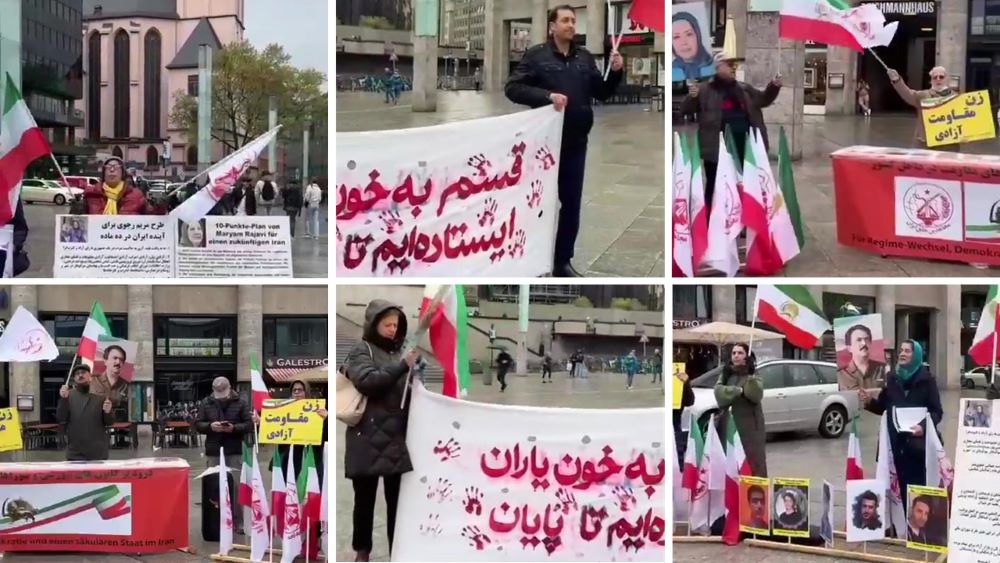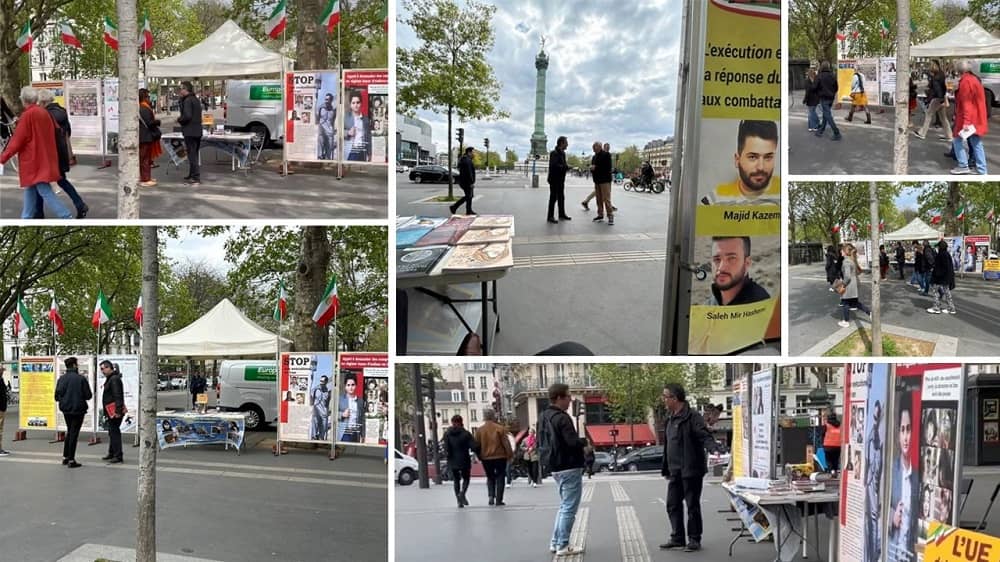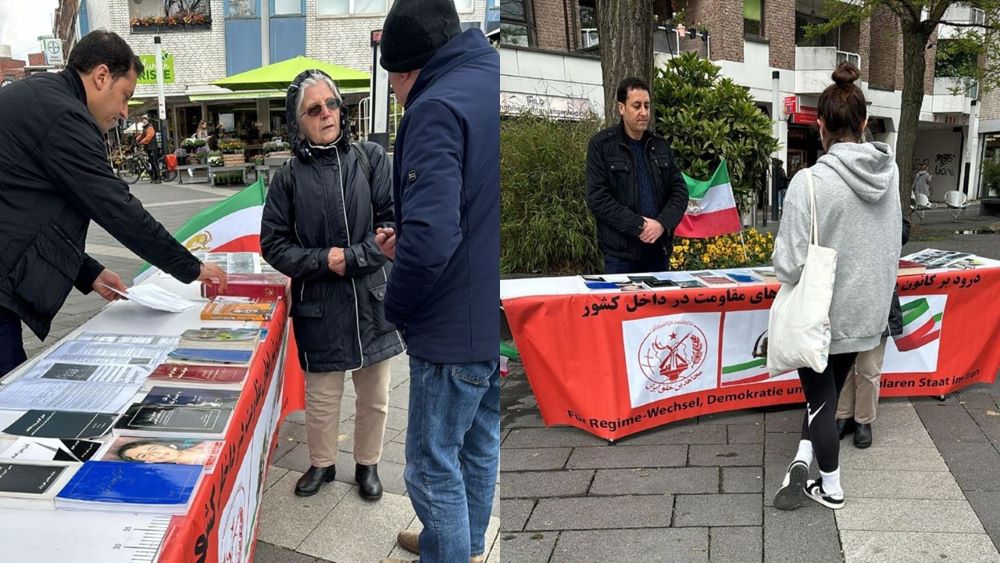Cross-party Members of Parliament from both the UK and European countries took part in a virtual conference on Thursday, 10 September 2020, to support the global campaign to seek justice for victims of the 1988 massacre of political prisoners in Iran.
Prominent human rights lawyers, a former UN official, the UK Representative of the Iranian Resistance Movement (NCRI), European parliamentarians and dignitaries also participated in the conference, which heard testimonies from the family members of the victims of the 1988 massacre.
Speakers agreed that the massacre of 30,000 political prisoners in Iran in 1988 is an ongoing crime against humanity ordered by the highest authority in the country at the time. They also argued that the appalling human rights situation in Iran is a direct result of the failure of the international community to hold the perpetrators of the 1988 massacre to account.
The keynote speaker at this event was Mrs. Maryam Rajavi, the National Council of Resistance of Iran (NCRI).
MP David Jones chaired the session that saw messages from numerous other peers from various parties and British dignitaries voice their support for this initiative to hold senior officials of the mullahs’ genocidal regime accountable.
David Jones MP – Chairman of the Thursday 10th September Conference:
It is great to be with you today and thank you for inviting me. I will be chairing today’s important virtual conference where we have cross-party colleagues from parliament, legal experts on human rights and representative of the Iranian Resistance Movement, the NCRI, in the panel who will discuss what the UK can and should do to support the global campaign for justice for the victims of the 1988 massacre of 30,000 political prisoners in Iran.
The 1988 massacre of 30,000 political prisoners in Iran is often referred to as the worst crime in Iran’s modern history and recognized by NGOs and some legal experts as an ongoing crime against humanity. In order to better understand the magnitude of this tragedy and the traumatic damages and suffering it has caused on the victims and their families, we have also invited some families members of the victims and former political prisoners who have survived these mass executions to tell us about their first-hand experience and personal account.
But before I introduce the other speakers and our witnesses, allow me to say a few words in opening remarks with regards to today’s topic and the recent developments with regards to Iran.
As many of you may have seen in the news, the recent headlines on Iran concerns the UN Security Council’s failure to extend the weapons embargo against the regime in Iran and whether to reimpose all international sanctions and UN Security Council resolutions on the regime because f its current breach of key restrictions of the nuclear deal the JCPOA.
These two issues together with the alarming human rights situation in Iran are and have been of serious concerns for many in the international community including the UK.
But I believe we have now come to the moment where expression of concerns about the regime’s unacceptable behaviour is not a sustainable policy. For far too long, the regime in Iran has escaped accountability and acted unacceptably both in Iran and abroad with impunity.
You do not need to be an expert, a politicians or a diplomat to understand that allowing a religious dictatorship – that has on its record the mass execution of 30,000 political opponents in its prisons and terrorism all around the world – to buy all sorts of weapons from China and Russia on the open market and legally will result in a dangerous disaster.
So the issue of accountability, and in other words ending impunity for the regime officials in Iran, is the key to stopping Tehran’s malign regional activities and pursuit of nuclear weapons. This is exactly the same argument at the centre of the topic we are discussing today.
And like the need to demand for an independent, international inquiry into the 1988 massacre and prosecute those responsible for this crime in an international tribunal, the extension of the weapons embargo and reimposing UN Security Council resolution on Iran has a widespread, cross party support in both Houses of Parliament and among lawmakers in other European parliaments.
In this regard, the British Committee for Iran Freedom just announced the support of over 200 parliamentarians from at least 15 European and Arabic countries for a statement that highlights these demands and calls on the international community and the Governments to do just that.
Similarly, we need international action at the UN level with regards to the 1988 massacre. An opportunity to do that is the expected UN Resolution on Iran condemning human rights violations in the country which will be voted on later this year in the Third Committee of the UN General Assembly and then in the General Assembly itself.
As a main sponsor of that resolution on Iran, the UK must work with allies to make sure that this year’s resolution on Iran calls for and secures an international independent investigation into the 1988 massacre and establishes a subsequent international accountability mechanism to prosecute those found responsible.
The UK Government has the backing it needs for taking these actions as the call for an independent international investigation into the 1988 massacre has strong support among the Iranian people, among the Iranian diaspora and parliamentarians similar to the extension of weapon embargo and the reimposing UN Security Council resolution on Iran.
The international community is now at a position that requires it to act on the three major concerns with regard to Iran, its human rights violations, its warmongering in the region and its nuclear and ballistic missile programme. At every turn in the last 40 year, the UN has failed to hold the regime to account in these regards. But today we echo the call by NCRI President-elect Mrs. Maryam Rajavi and urge the UK Government to lead the international effort and work with international allies to alter this alarming trend and end impunity for the regime and its officials by extending the weapons embargo, reimposing all UN Security Council resolution and securing an international, independent inquiry into the 1988 massacre of 30,000 political prisoners.

